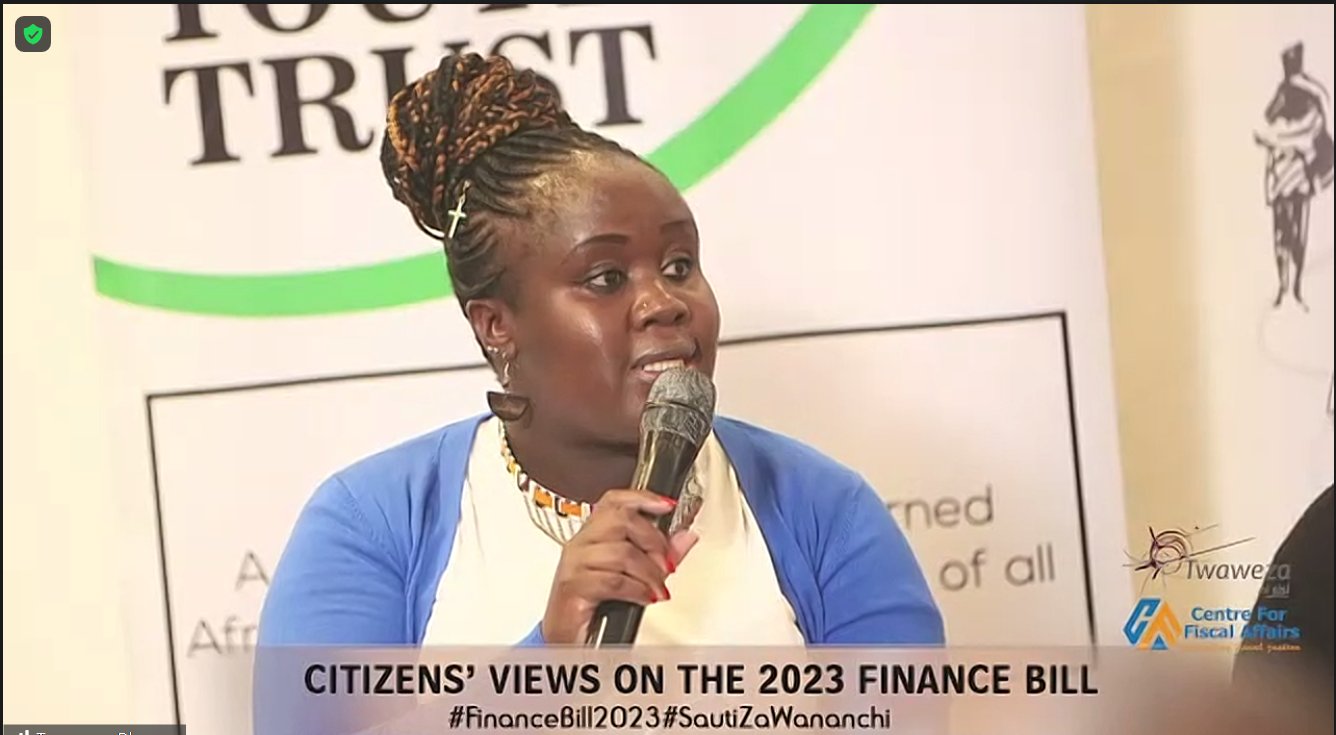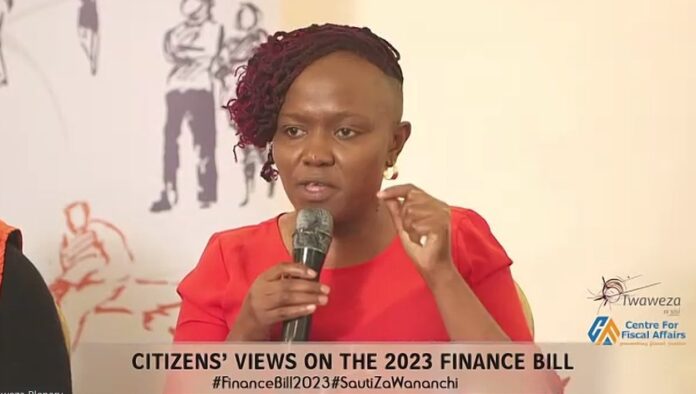By Winnie Kamau
Nairobi, Kenya: 93% of Kenyans do not support the contentious Finance Bill 2023, a survey by the Centre for Fiscal Affairs (CFA) and Twaweza has shown.
In the online survey conducted between May 19 and June 6, 2023, 83.8% of respondents expressed their dissatisfaction with the lack of citizen participation in shaping the Finance Bill.
66% of Kenyans pay tax to ensure delivery of public services while 39% pay tax because it is compulsory. 48% of citizens believe the level of the tax evasion is high.
The three top cited reasons for evading tax in the country are 41% of Kenyans say high tax rates on income while 40% say they did not have enough income to pay taxes and 22% Kenyans think their taxes are not spent efficiently by the government.
Meanwhile, 67% of the respondents supported the amendments like exempting the LPG gas from VAT and 68% supported the reducing excise tax on bank money transfers from 20% to 15%. 68% of the respondents also supported the lowering of excise duty on data bundles to 15% from 20% of the excisable value.
Alternatives offered by Kenyans on revenue generation include: addressing corruption, reducing wastage in government, broadening the tax base by simplifying tax laws, targeting untapped sources and strengthening tax administration.
Diana Gichengo the Chief Executive Officer of the Institute for Social Accountability (TISA) on the proposed Bill noted that “Kenyans are not the biggest tax cheats; we would be a tax haven if Kenya were that facilitative. We have an expenditure problem & a governance problem, & that is why we have such a huge debt” she said.
.@dianagichengo on domestic revenue mobilization: #Kenyans are not the biggest tax cheats; we would be a tax haven if Kenya were that facilitative. We have an expenditure problem & a governance problem, & that is why we have such a huge debt.#SautiZaWananchi #FinanceBill2023… pic.twitter.com/MfXcAlG5ra
— Twaweza Kenya (@Twaweza_Ke) June 26, 2023
The report also called for transparency in government in order to help build trust between citizens and government institutions.
Following this, Members of the National Assembly who are currently debating on the contentious Bill have been urged to make an informed vote on the Bill taking into consideration the views of the citizens. 25,966 people were polled in the online survey by Twaweza East Africa and the Centre for Fiscal Affairs (CFA).
 Kenya is currently going through a challenging financial situation with the growing debt stock 9.1Trillion shillings which is 67% of GDP. Kenyans are concerned as it continues to eat into government revenue, affecting its ability to deliver quality public services.
Kenya is currently going through a challenging financial situation with the growing debt stock 9.1Trillion shillings which is 67% of GDP. Kenyans are concerned as it continues to eat into government revenue, affecting its ability to deliver quality public services.
The Budget estimates for 2023/24, for every 100 Ksh tax collected 63Ksh goes towards debt repayment.
Kenya Revenue Authority is expected to raise 2.89T Ksh revenue collection that is expected to service a 3.6T Ksh Budget leaving a deficit of 76B Ksh. Many Kenyans have decried the Finance bill saying they are currently crushed by high cost of living, as many have stagnant and limited income.
The Finance Bill 2023 has been described by many as a dynamic piece of legislation, shaping the nation’s economic landscape. Its impact, though accompanied by differing opinions, reflected the complexities of navigating the country’s financial realities and aspirations for growth and development.
In the Bill is the 3% levy to be taxed on all people who are employed both in the Government and Private sectors. According to the housing levy is expected to spur the construction of affordable housing units, albeit with ongoing debates about its implementation and potential adjustments needed to ensure fairness and affordability
Economist Kwame Owino was recently on Citizen TV where he convincingly and firmly discredited the Finance Bill 2023 especially on the 3% Housing levy saying “The problem is not a housing problem right here in Nairobi there are houses that are unoccupied, the problem is that people do not have enough income to pay for the houses” he said.
The other controversial aspect of the bill was the introduction of a digital service tax. This tax targeted companies providing digital services in Kenya, even if they were based overseas. While the government argued that this tax would ensure a fair contribution from digital businesses operating in the country, critics expressed concerns about potential double taxation and the possibility of deterring foreign investors in the digital sector.














